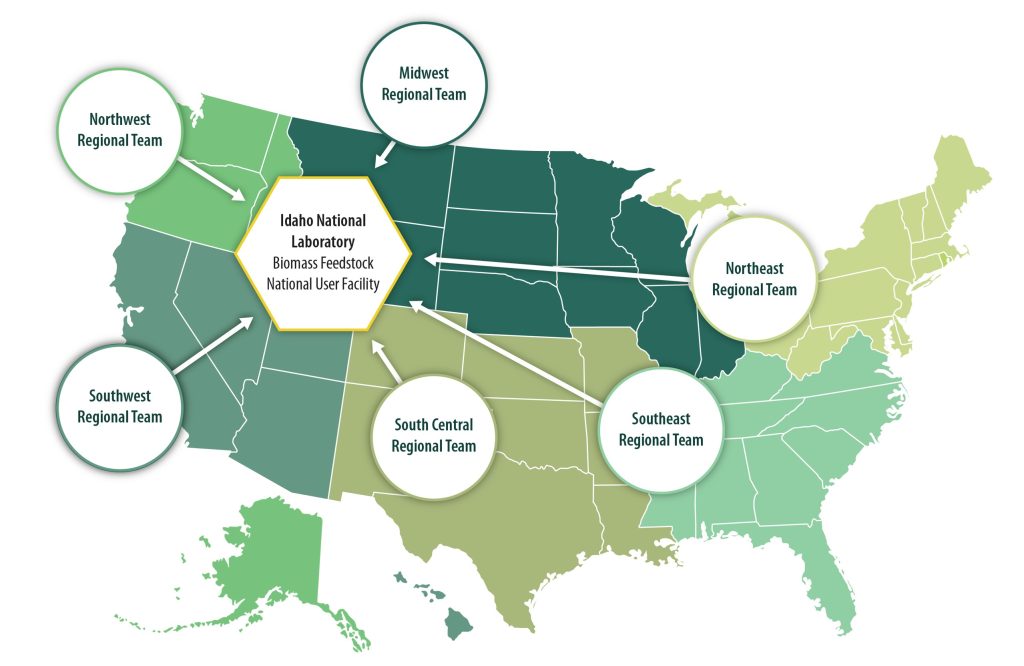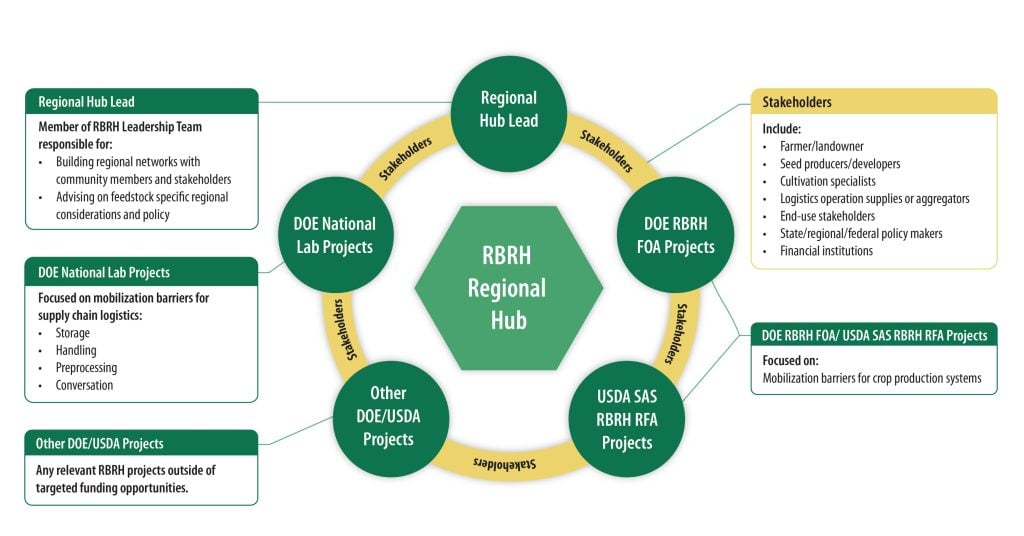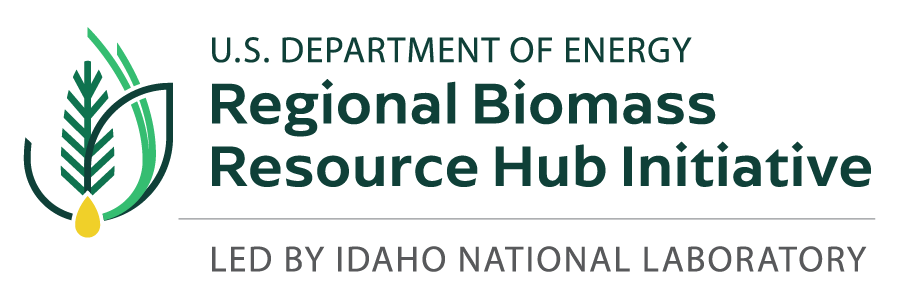Regional Biomass Resource Hub Initiative
Enhancing United States energy security and economic growth with purpose-grown energy crops
Driving Innovation in Biopower, Biofuels and Bioproducts Production
The Regional Biomass Resource Hub Initiative (RBRH) is a new initiative supported by the U.S. Department of Energy (DOE) Bioenergy Technologies Office (BETO) designed to accelerate the mobilization of purpose-grown energy crops for production of biopower, biofuels and bioproducts.
Led by the Idaho National Laboratory (INL), the Initiative is supported by researchers with expertise in feedstock production, integrated landscape management, carbon intensity measurement and supply chain logistics. This expertise is augmented by the BETO-funded Biomass Feedstock National User Facility (BFNUF), a facility that houses advanced technology and expertise to address biomass-related challenges. The BFNUF enables INL researchers to focus their expertise on key areas such as in supply and logistics, analysis, preprocessing, and characterization.
RBRH will achieve its objectives by establishing regional hubs to focus on mobilization efforts for the relevant crops and barriers in each region as outlined in the figure below. These established regional hubs will include researchers from competitively selected projects, national lab researchers, government agencies such as the Department of Agriculture and DOE. The hubs will also incorporate involvement from stakeholders, including farmers, landowners, algae cultivation specialists, seed producers, logistics operation suppliers and aggregators, and end-use stakeholders to ensure the hubs meet the needs of the industry and communities they serve.

Additionally, RBRH will support specific university and industry projects within these hubs to expand a domestic supply chain of alternative carbon sources essential to biofuels and bioproducts production, as well as innovate and grow the U.S. agricultural industry.
RBRH plays a critical role in mobilizing biomass and waste feedstock and developing innovative new technologies by coordinating the development and demonstration of resilient production systems for purpose-grown energy crops and identifying and validating regional strategies to mobilize resources toward economic growth and energy independence. The hubs will also work to build markets for these crops and support the development of the biofuels and bioproducts industry.

By leveraging market-driven strategies and promoting industry collaboration, the initiative seeks to build a resilient and integrated bioeconomy that contributes to America’s energy security and economic prosperity. By supporting bioeconomy growth through initiatives like RBRH, the U.S. enhances its energy resilience and dominance while positioning itself as a leader in the global transition to economic growth throughout the bioeconomy.



